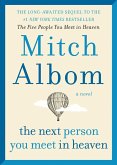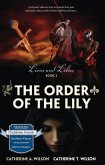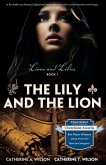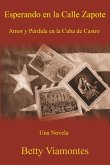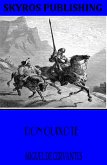When the Cuban revolutionary, José Martí awakens from death in the afterlife, he finds himself high in the Sierra Maestra and is swiftly led by forces to the Hacienda of the spirits. There he finds the ghosts of his fellow revolutionary comrades of Cuba's bid for independence.
As time continues, the spirit of José Martí finds the attic of the house in which the souls have been drawn. The apparitions of books swiftly manifest upon empty bookshelves lining the attic walls. Immediately observing the novel, Don Quixote de la Mancha he begins to read his unrivalled favorite literature aloud. His fellow veterans also discover the library and as José Martí continues, he summons the spirit of Don Quixote; returned from the dead to an afterlife as a worldly ghost.
When the owners of the hacienda appear to the spirits for the first time, they become aware that their presence is felt by the couple. Soon Lina gives birth to a son. Instantly a special bond forms between Don Quixote and the newborn. The veterans are equally enamored with the new child; Fidel Alejandro Castro.
Don Quixote serves as a kind of alter ego for the young Castro, often seeing the events of his childhood and pre-revolution society through the prism of the rites of chivalry.
As time continues, the spirit of José Martí finds the attic of the house in which the souls have been drawn. The apparitions of books swiftly manifest upon empty bookshelves lining the attic walls. Immediately observing the novel, Don Quixote de la Mancha he begins to read his unrivalled favorite literature aloud. His fellow veterans also discover the library and as José Martí continues, he summons the spirit of Don Quixote; returned from the dead to an afterlife as a worldly ghost.
When the owners of the hacienda appear to the spirits for the first time, they become aware that their presence is felt by the couple. Soon Lina gives birth to a son. Instantly a special bond forms between Don Quixote and the newborn. The veterans are equally enamored with the new child; Fidel Alejandro Castro.
Don Quixote serves as a kind of alter ego for the young Castro, often seeing the events of his childhood and pre-revolution society through the prism of the rites of chivalry.
Dieser Download kann aus rechtlichen Gründen nur mit Rechnungsadresse in A, B, CY, CZ, D, DK, EW, E, FIN, F, GR, H, IRL, I, LT, L, LR, M, NL, PL, P, R, S, SLO, SK ausgeliefert werden.



